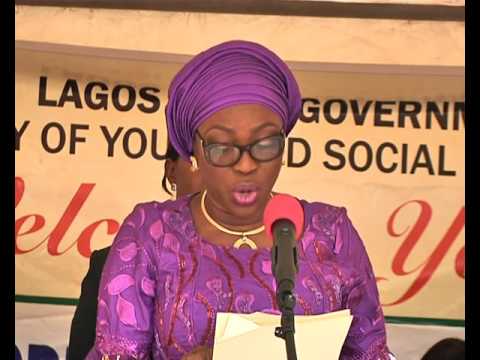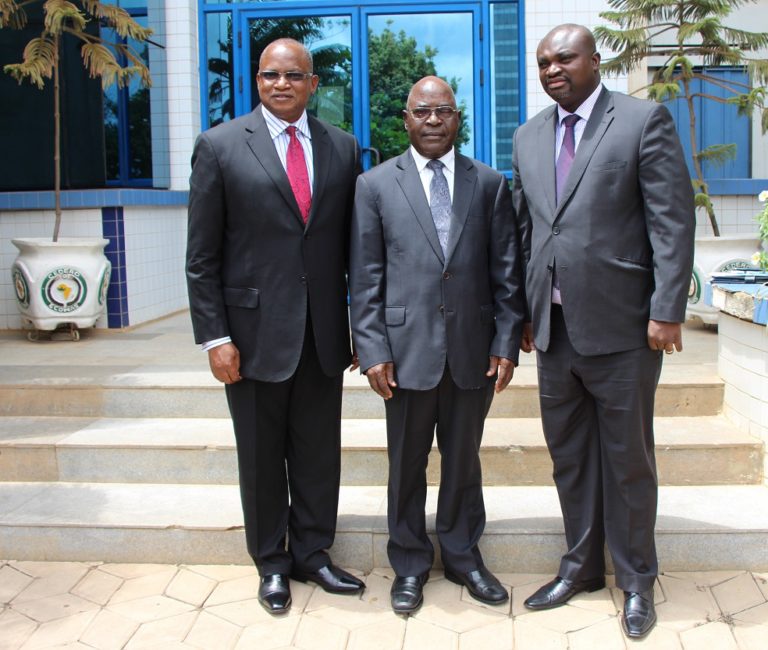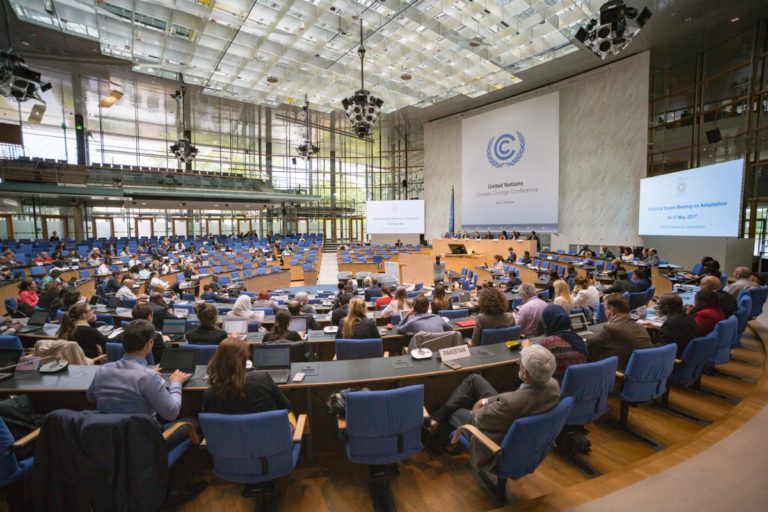Radio Report: Maternal and child health in Kaduna
WASCAL, ECOWAS in bid to mitigate climate change effects
The Economic Community of West African States (ECOWAS) and the West African Science Service Centre on Climate Change and Adapted Land Use (WASCAL) have renewed their commitment to combat climate change and mitigate its impacts in the region by implementing the Memorandum of Understanding (MoU) between both organisations.
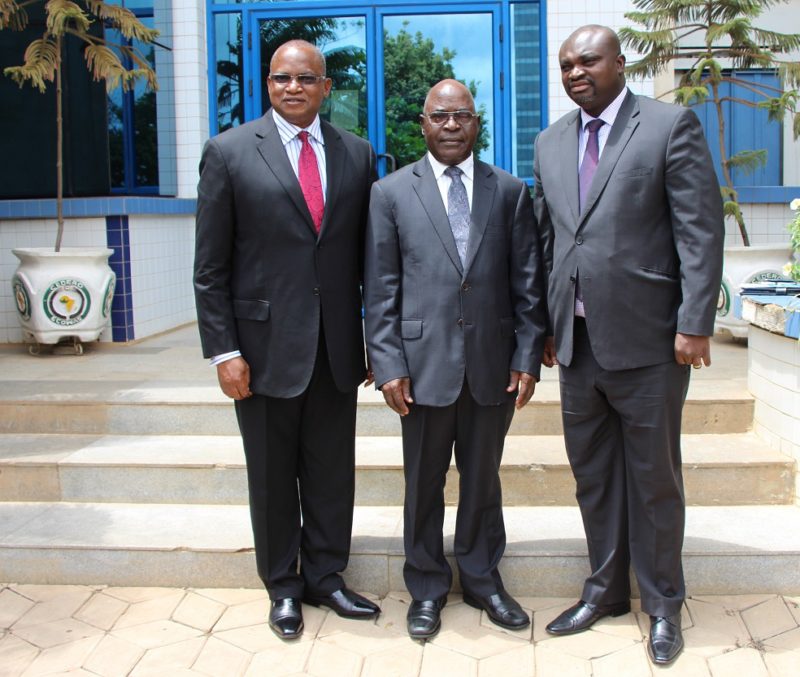
Marcel de Souza, the ECOWAS president, who was represented by Tchambakou Ayassor, Commissioner for Agriculture, Environment and Water Resources, emphasised the need for all the ECOWAS member states to partner with the WASCAL in a bid to combat the adverse effects of climate change in the region.
In his remarks during a meeting which was held on Monday, May 15, 2017 in Abuja, Nigeria’s federal capital city, Ayassor stated that, due to the population of West Africa, it was a priority of the commission in collaboration with the WASCAL to build the capacity of the region on a national and institutional level in order to achieve significant results.
“With the effects of climate change cutting across various sectors of the economy and affecting the lives of Community citizens, the signing of the MoU between ECOWAS and WASCAL in April 2016 highlights the importance placed on this challenge,” he said.
Similarly, Peter Dery, the chairman of the WASCAL Board of Directors, noted that its technical team would liaise with ECOWAS in order to strategise on an implementation plan for the MoU with focus on climate services, climate research and capacity building.
To this end, “the WASCAL Capacity Building Programme facilitates academic education amongst 10 West African universities in collaboration with German institutions. The activities focus on the training of Doctoral and Master’s Programmes in climate change thematic areas,” he said.
Furthermore, Jimmy Adegoke, the WASCAL executive director, informed the commissioner that with the support of the German government, 50 automatic weather stations and 20 automatic hydrological stations had been procured and would be distributed to member states to enable them generate relevant climate information.
The delegation from the WASCAL requested the ECOWAS to use its influence to ensure that member states which are also members of the WASCAL fulfil their financial obligations by remitting their dues.
The WASCAL was established in May 2012 with the aim of providing information and knowledge at the local, national and regional levels to its West African member countries in order to cope with the adverse impacts of climate change.
It currently has 10 West African member countries (Benin, Burkina Faso, Côte d‘Ivoire, The Gambia, Ghana, Mali, Niger, Nigeria, Senegal and Togo), with Cape Verde and Guinea Bissau in the process of joining the organisation.
Also in attendance of the meeting were Johnson Boanuh, the ECOWAS director for Environment, and Alain Sy Traore, the director for Agriculture and Rural Development.
World Hypertension Day: Seven out of 10 Nigerians are hypertensive, says expert
Prof. Modupe Onadeko, a former Reproductive Medicine Consultant at the University College Hospital (UCH), Ibadan, has said that no fewer than seven out of 10 Nigerians are hypertensive.
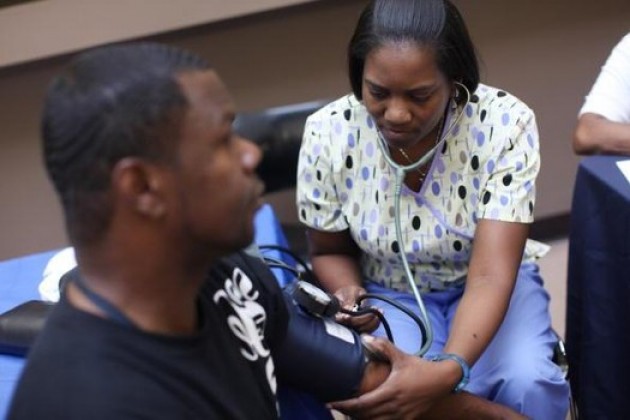
Onadeko made this disclosure while speaking with the News Agency of Nigeria (NAN) on Wednesday in Ibadan, the capital of Oyo State, on the occasion to commemorate the 2017 World Hypertension Day.
According to the consultant, 50 per cent of the affected people are unaware of their condition while the remaining ones do not even bother to seek any medical help.
NAN reports that May 17 of every year was being observed as the World Hypertension Day, which began in 2005 by The World Hypertension League, a health organisation.
The day is not a work free day but it was set aside to increase public awareness about hypertension and why everyone should maintain a normal blood pressure.
The theme of the 2017 occasion is: “Know Your Blood Pressure”.
Onadeko said in order to avoid complications arising from hypertension, one of which is stroke, patients should avoid certain habits such as smoking and alcohol intake.
She said that it was better for the patient to adopt low sodium (salt) intake of 1.5 to 2.5 g, low-fat and high-fiber diet, fruits and green vegetables.
She said: “Treating the disease also involves proper physical exercise: aerobics, healthy weight, regular pulse, and low cholesterol level as well as a record of healthy family history among others.”
Onadeko advised that people should adhere to their doctor’s instruction on healthy diets and physical exercise because hypertension is a “silent killer”.
The UCH Mortality Report and Statistics indicated that, from January to December 2014, stroke due to High Blood Pressure was the leading cause of death.
In the report compiled by Prof. Temitope Alonge, out of the total 1,915 deaths recorded in UCH, stroke came first with 201/10.5 per cent of the record.
France, IUCN collaborate to support global environment, development efforts
The International Union for the Conservation of Nature (IUCN) has signed a new framework agreement with France for 2017-2020, which aims to support the Union’s work to conserve the planet’s biodiversity and achieve sustainable development.

The new agreement focuses on improving the protection and management of the oceans, islands and coasts, conserving ecosystems to combat climate change, reducing the negative impacts of business activities on the environment, and strengthening global biodiversity governance.
“France has been one of IUCN’s key strategic partners for over a decade,” says IUCN Director General, Inger Andersen. “Our collaboration has demonstrated the importance of nature conservation in addressing global challenges the world is currently tackling including climate change, and food and water security. It is with great satisfaction that we renew this unique partnership.”
IUCN’s partnership with France aims to contribute to the achievement of the Sustainable Development Goals (SDGs) and implementation of the Paris Agreement on climate change. The agreement commits almost €9 million for the next four years, and will support projects in French overseas territories and provide secondments to contribute to IUCN’s technical expertise, among others. The agreement involves the French Ministry of Environment, Energy and the Sea, Ministry of Foreign Affairs and International Development, Ministry of Overseas territories and Ministry of Agriculture, as well as the French Development Agency. It builds on IUCN’s long standing partnership with France, which dates back to 2005.
“The France-IUCN partnership on nature and development has achieved exemplary outcomes. For instance, it contributed significantly to work on oceans and nature-based solutions to climate change during COP21 in Paris. One cannot mention all projects facilitated by this partnership in areas of research, training or fieldwork,” says Xavier Sticker, French Ambassador to the Environment, adding:
“France has invested heavily in IUCN since its creation in Fontainebleau in 1948. The strategic partnership initiated in 2005 structured our cooperation into a long-lasting partnership. The 2017-2020 framework now provides a new impulse. Thanks to IUCN’s expertise and the contribution from its extended network of scientific experts and civil society organisations, our human and financial investments are amplified.”
Countries share climate achievements, highlight benefits of action
Some 17 developed countries and 10 developing countries presented their actions to reduce greenhouse gas emissions to date and highlighted key achievements, challenges and benefits of climate action.
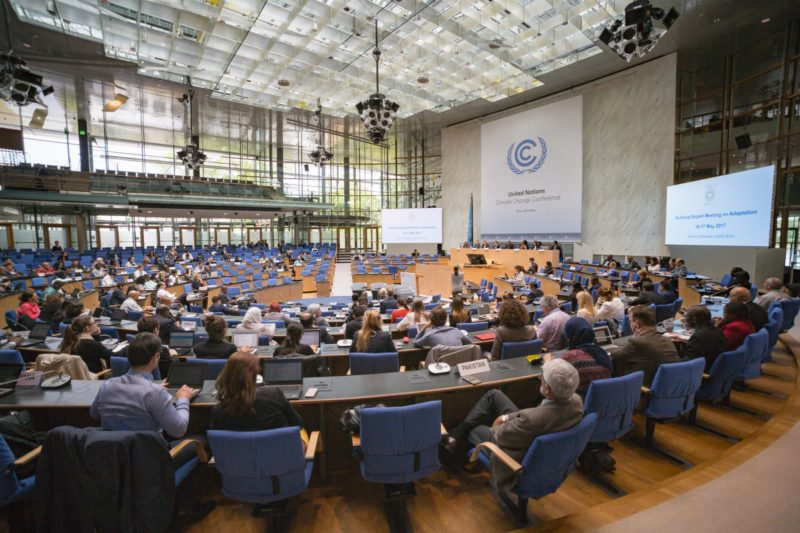
One of those developing countries was Mauritania, the first LDC participating in this type of forum and presenting a clear plan of action on climate change.
During the presentations by the 17 developed countries, it became clear that amongst this group, the overwhelming majority are confident that they will meet their 2020 quantified economy-wide reduction targets.
For many of them, the 2020 emission levels are now expected to be lower than projected two years ago as a result of their climate actions.
In a fifth session of the so-called “multilateral assessment”, the developed countries including, Canada, Cyprus, France, Greece, Iceland, Ireland, Japan, Kazakhstan, Liechtenstein, Luxembourg, Monaco, Portugal, Romania, the Russian Federation, Slovenia, Spain and the United States of America presented progress on their climate actions.
Next to progress on their 2020 targets, these countries clearly showed that green growth in view of a climate neutral future drives a higher GDP and creates jobs. For example, France showed positive GDP impacts and employment effects due to their Energy Transition for Green Growth strategy, which is likely to add between 108,000 and 350,000 new jobs a year by 2035.
To meet their targets, this group of developed countries are implementing a wide range of policies and measures to drive progress and many of these policies have been instrumental in delivering sizeable emission reductions. Carbon pricing, in a form of carbon tax or emissions trading, was presented as a backbone of climate policies for most of these countries.
For example, Canada has successfully introduced a carbon pricing benchmark as one of the pillars of its Pan-Canadian framework on clean growth. Luxembourg has been very successful in implementing energy standards in buildings to increase the efficient use of energy. The Russian Federation is successfully moving forward its forestry sector development programme, which includes reforestation, as a contribution toward reducing the concentration of greenhouse gases in the atmosphere. Another example is Japan, which is widely deploying electric cars as part of its ‘Highly energy-efficient vehicles’ campaign.
Lastly, many of this group of developed countries highlighted that they are preparing long-term strategies towards a climate neutral and resilient future to guide near- and mid-term policy and investment decisions.
In addition to the developed countries, ten developing countries presented updates on the status of their actions to reduce emissions and to report on these in a transparent manner.
In a third session of the so-called “facilitative sharing of views”, India, Indonesia, Israel, Malaysia, Mauritania, Moldova, Montenegro, Morocco, Thailand and Uruguay presented updates on their climate actions and the status of their greenhouse gas emissions and removals.
The experiences shared by some countries include actions and policies to decouple economic growth from the growth of greenhouse gas emissions to achieve the goals set out in their national climate action plans (Nationally Determined Contributions, or NDCs.
Importantly, many also focused on identifying ways of reconciling their priorities for economic growth and poverty eradication with emission reductions.
One remarkable example of what developing countries are doing was India. India presented its ambitious renewable energy plan of increasing the target of renewable energy capacity of 175,000 MW by 2022 mostly on solar power plants, with the Jawaharlal Nehru National Solar Mission (100,000 MW) being central in achieving this target.
Many also shared experiences with the use of market-based policy instruments in promoting renewable energy sources. Examples include the Renewable Energy Certificates (RECs) and renewable energy source certificate scheme in India and Israel respectively.
Some countries also provided information on innovative approaches in promoting support of local governments in implementing national climate change policies, as well as the promotion of private-public partnership and incentive structure to promote climate technologies and innovation.
Action is also happening in the land use, land use change and forestry sector where, for example, Indonesia presented a large number of mitigation measures that are expected to reduce 600 Mt CO2e by 2020, in particular on REDD+ (reducing emissions from deforestation and forest degradation) policies.
Malaysia also provided information on its Sustainable Forest Management and strengthened National forestry and Biodiversity Policies.
Countries including Uruguay, Montenegro, Thailand and Morocco identified their capacity building needs for the implementation of several emission reduction measures in different sectors such as technology to efficiently use energy. Another capacity need highlighted by both countries is the development and consolidation of existing institutional arrangements to integrate climate change into national policies, programmes and plans.
Both the multilateral assessment of developed countries and the facilitative sharing of views by developing countries took place in a cooperative and positive atmosphere. Developed and developing countries clearly see both processes as essential in sharing experience and enhancing international co-operation.
It was also clear that several Parties are looking at how to strengthen the policy infrastructure to implement a long-term vision on climate change.
All countries involved showed their determination to implement their national emission reduction plans defined in their NDCs and to keep working to enhance their capacity and institutions for the future transparency framework under the Paris Agreement.




